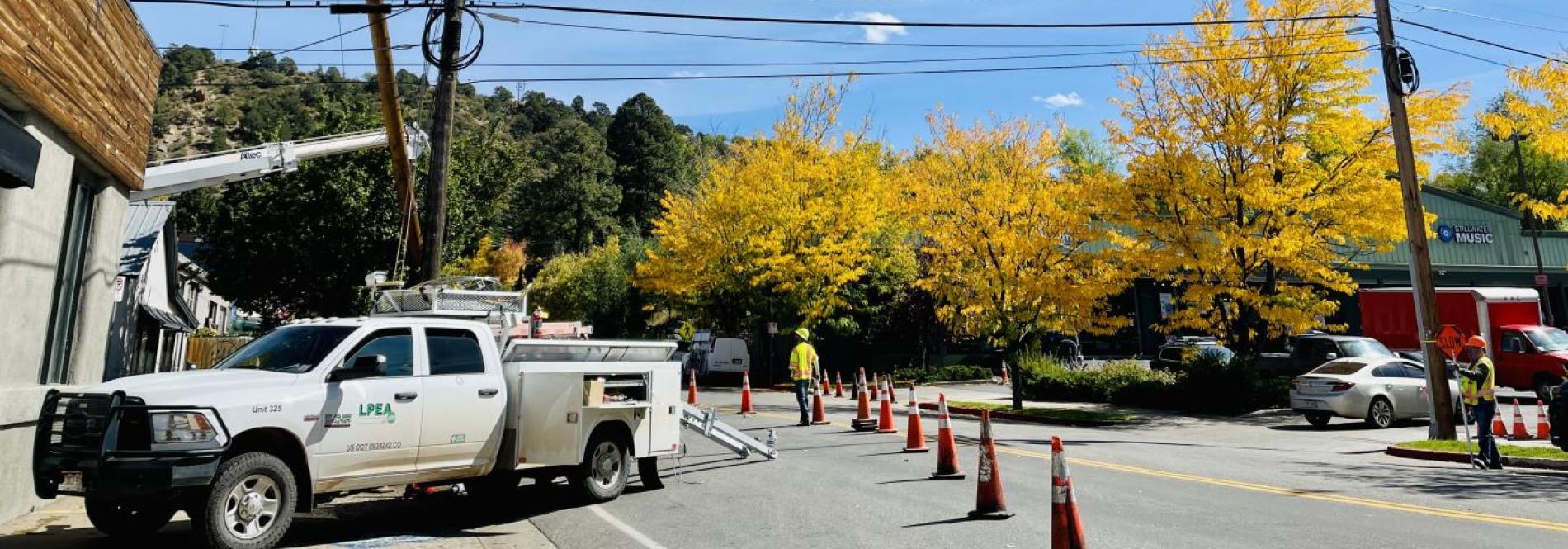
La Plata Electric Association (LPEA) and the Farmington Electric Utility System (FEUS) have entered into a formal mutual aid agreement, deepening cross-border cooperation and enhancing regional response capabilities in the event of major outages or infrastructure emergencies.
The agreement enables both utilities to share crews, equipment, and expertise when severe events, such as wildfires, storms, or large-scale system failures, exceed one utility’s capacity to respond alone. This partnership will allow for faster power restoration, reduce service disruptions, and improve resource coordination across the region.
“This is about neighbors helping neighbors,” said Chris Hansen, CEO of LPEA. “Whether it’s responding to a wildfire in Pagosa Springs or restoring power after a storm near Farmington, this agreement ensures we can act quickly, safely, and together. It strengthens not only our systems, but the communities we serve.”
Though LPEA is a member-owned electric cooperative in southwest Colorado and FEUS is a municipally owned utility in northwest New Mexico, both organizations share a common mission: to deliver safe, reliable, and affordable power. With just 50 miles between headquarters, this agreement creates a foundation for more agile responses during regional emergencies, particularly as the Four Corners area faces increasing wildfire risks and extreme weather conditions.
FEUS Utility Director Hank Adair echoed that sentiment: “Mutual aid is about answering the call when our fellow utilities are in need. FEUS and LPEA are long-standing neighbors in an interconnected energy landscape, and this agreement is a natural fit for both utilities' shared commitment to safe, reliable service.”
The Four Corners region is a critical transmission hub for the western grid, and a growing center for energy transition efforts. This pact recognizes the increasing interdependence of utilities in ensuring service continuity, especially during times of crisis.
In addition to mobilizing field crews and equipment, the agreement outlines clear expectations for communication, safety standards, and cost accountability during joint response efforts.
“Utilities today must be flexible, coordinated, and prepared,” Hansen added. “This agreement reflects those priorities and demonstrates the real-world value of partnership, whether cooperative or municipal.”
The mutual aid framework also leaves room for collaboration on large-scale projects and opens the door for future partnerships with other nearby utilities. Both LPEA and FEUS hope this model can serve as a template for expanded regional cooperation.
